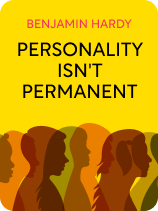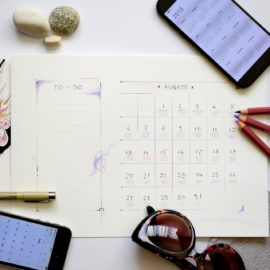

This article is an excerpt from the Shortform book guide to "Personality Isn't Permanent" by Benjamin Hardy. Shortform has the world's best summaries and analyses of books you should be reading.
Like this article? Sign up for a free trial here.
Are you a negative person? How can you keep a positive outlook no matter the circumstances?
Life is hard and full of suffering, and there’s no way to deny this fact. Staying optimistic in the face of the tragedy of life isn’t about trying to avoid anything bad happening to you. Rather, it’s about finding a silver lining in every situation.
With this in mind, here’s how to be an optimist no matter how dire your circumstances are.
Develop an Optimistic Attitude
Learning how to be an optimist isn’t easy. When an event happens to you that you wish hadn’t, it’s easy to tell yourself narratives that frame you as a disempowered victim of bad circumstances. But Hardy argues that no event is intrinsically good or bad—they all have positive and negative aspects.
By focusing on the positive aspects of events, it becomes easier to accept them. This helps you feel motivated and empowered to keep working toward your goal when things happen that would usually make you feel unmotivated and disempowered. Telling yourself narratives that focus on being grateful for the positives in a situation helps you see the negative aspects as less important and helps you feel less victimized. As a result, you can more easily recover from a negative experience without losing momentum or hope.
For example, if your car breaks down, your gut reaction might be to tell yourself the narrative that this is an awful event that will ruin your day and get in the way of working on your goal. Instead, tell yourself a more positive narrative. You might focus on the fact that you broke down in a convenient location, and tell yourself that this lucky fact means you can still have a good day and get your work done.
In addition to making the best of a negative situation, you can also turn a negative situation into a positive one. With creative problem-solving, you can make events that would usually present obstacles to your goals into events that help you meet your goals. To do this, find the opportunities the obstacle presents you with, and take advantage of them. For instance, maybe you’ve been wanting to get more fit. Your car breaking down can be the perfect excuse to begin biking to work.
| The Ancient Art of Focusing on the Positives In his book, The Obstacle Is The Way, Ryan Holiday suggests that both of these strategies for overcoming obstacles by shifting your mindset have a long history, dating back to antiquity. He argues that the Stoic philosophers of ancient Greece and Rome were unlike most philosophers in history in that they were practical—focusing on how to improve people’s lives instead of speculating about the nature of reality. The Stoics were proponents of the idea that shifting your mindset is the key to a good life, and they wrote extensively about strategies for overcoming obstacles by changing your narratives about them. While Stoicism was a formal movement, Holiday says Stoicism has existed as a mindset in people all across history. Most of the world’s highly successful figures, historical and current, reached their success by applying Stoic principles to their lives, whether or not they ever even heard of Stoicism. |

———End of Preview———
Like what you just read? Read the rest of the world's best book summary and analysis of Benjamin Hardy's "Personality Isn't Permanent" at Shortform.
Here's what you'll find in our full Personality Isn't Permanent summary:
- How personality is not fixed, but fluid and changeable
- How the narratives you tell yourself dictate what you’re capable of
- How to change your personality to become your optimal self






